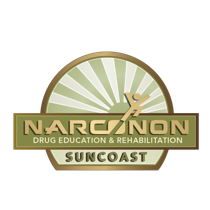5 Reasons People Choose Not to Get Help That Are Actually Reasons They Should

Finding reasons treatment does not seem possible is an easy trap to fall into. There can be many reasons people might use to avoid committing to drug or alcohol treatment. Let’s go over and address some of the main factors people must confront in order to pursue adequate treatment.
My Job
With the prevalence of prescription drug abuse and societal norms regarding alcohol, there are those who may fall into the category of seeming to have a “functional addiction.” In fact, according to a study by the National Safety Council, 75% of employers report that opioid use impacts their workplace. (cdc.gov) For individuals who are addicted and still working, the fear of losing their job, business, clients, or status after a period of absence can be tremendous factors that prevent people from deciding to seek treatment. The fact is, as the drug or alcohol addiction progresses, a person will be unable to perform their job at the standard required. Alcohol, tobacco, and illicit drug abuse cost our nation $740 billion annually in costs related to crime, lost work productivity, and health care (cdc.gov). An addicted person can break commitments to clients and customers, upset colleagues and burn bridges altogether. This can lead to unemployment and quite possibly becoming unemployable until the addiction is handled. The Americans with Disabilities Act (ADA) protects individuals in addiction recovery from being discriminated against in the workplace. [1] This means that your employer cannot fire you based upon your decision to seek treatment for alcoholism or substance abuse. An employer may not discriminate against a person who has a history of drug addiction but who is not currently using drugs and who has been rehabilitated [2]. If you are not comfortable divulging details of your treatment to coworkers, that is perfectly fine. You can simply notify coworkers that you will be taking a medical-related leave of absence and HIPAA protects your right to privacy. Once enrolled at a treatment center for substance abuse, State and Federal Law protects your right to privacy.
My Family, My Kids, My Pets
Arguably, one of the most common factors in deciding NOT to commit to inpatient treatment for drug and alcohol dependence is, what will happen to my kids or how will my family be taken care of? What about my pets? Locating and arranging care for your dependents can be difficult to facilitate. So allow me to pose another question. How are your loved ones cared for when you are using? While you are chronically intoxicated? For many, there is much greater support than initially realized. Often it is pleasantly surprising how much help is available and how adequate the support is to fulfill a need for substance abuse treatment. The more pressing question to pose is if my addiction ends in tragedy (without seeking treatment or help to stop), what happens to my family then? What happens when I’m in a stupor and not providing adequate care, and someone I love is harmed as a direct result of my addiction? Who will be there to care for my beloved family, child, or pet when they are without me, permanently?

I Can Do it Without Help!
I don’t need an inpatient treatment facility. No need to go to any special place. I can do just fine in my familiar surroundings. I can do it at home. If all these things were true, it is highly doubtful that I’d be writing this or you reading it. So, can you actually get sober without a rehab program? Sure, of course, it is possible to get sober without rehab. I would guess that successfully doing so and staying clean and sober is becoming increasingly rare. Otherwise, why else would addiction be such a widespread problem today? A person who completes a comprehensive and well-rounded treatment plan is giving themselves a much better chance to have a better outcome and enjoy a dedicated, sober lifestyle with a proven method, support and the tools necessary to implement lasting change.
I’ll go after the Holiday, Wedding, Birthday
This is a common fallacy that one should delay working a program for substance abuse so that one can be present at an event or gathering or for any date on the calendar. This is a very silly manner of thinking, in my opinion, and short-sighted. You do not need to be present for your second cousin’s wedding when you’re high on drugs or a struggling alcoholic. Take this sage advice from someone who has been there. Do not fret over missing an event that you could quite possibly make a complete fool of yourself at in full-blown addiction. Everyone who truly cares for you will be glad that you are dedicating time to bettering yourself. The amount of time it takes to get better and to remain that way is nothing when compared to living on borrowed time and in a state of chronic misery that is living in active addiction.
Feeding Into the Stigma
“I am not a junkie,” or “I am not slumped in some dark alleyway,” or “I don’t live on skid row in a tent with a needle hanging out of my arm.” For many people, this is the common personification of drug addiction which would necessitate inpatient treatment. This is categorically false! The stigma that affects how society views drug addicts can also affect how addicts perceive themselves—and many can be in deep denial about their addiction. When living in active addiction, many will do anything not to perceive themselves as addicted. As is often the case, people will believe they are functioning at a much higher level than they are. Few things in life are like they are portrayed in television or the movies. In order to receive treatment for our addiction, do we really have to lose it all first? No, of course, we don’t. We don't need to burn every bridge and destroy every relationship in order to get help and get better. So many who have been to treatment and completed it successfully say some version of the same thing; “I only regret not doing it sooner” or “I feel so fortunate to have renewed my life.”

There are countless excuses to avoid committing to an intense treatment plan. Some reasons are more serious and will require some logistical planning to make treatment work. In my experience, though, most reasons given as to why treatment is not an option are even more reasons why treatment needs to be sought. I will always believe, based on my own experience and those that I have seen in others, that participating in a dedicated treatment program gives one a much higher chance of success.
Many of the issues faced, ones that were once excuses to continue living a life in disarray, can be solved during and after treatment. Working out the impediments that stand in the way of doing what needs to be done and addressing the dependency to drugs or alcohol will be the first of many accomplishments in a clean and peaceful life. There really is no viable reason for a person to continue to deprive themselves and their loved ones of the peace and stability which will be obtained from making a commitment to getting help and changing their life.
Kate K.—Narconon Suncoast Graduate and Contributor


